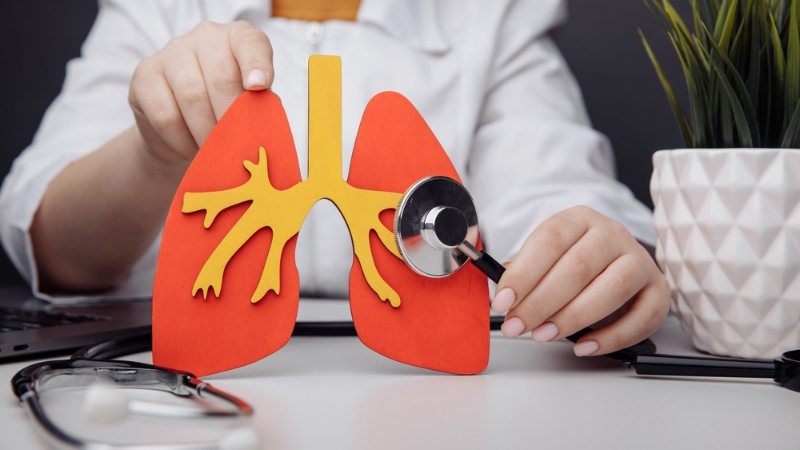Pulmonary Function Tests"Assessing Respiratory Health for Optimal Lung Function."

We specialize in conducting Pulmonary Function Tests at our medical center, which offer thorough evaluations of respiratory health. Acknowledging the critical role that lung function plays in overall health, our services provide accurate diagnosis and tailored information. This section will discuss the importance of pulmonary function tests, the conditions they evaluate, possible concerns, and the unique qualities that set us apart as a premier provider of top-notch pulmonology care.
What Are Pulmonary Function Tests (PFTs)?
PFTs, or pulmonary function tests, are a group of non-invasive diagnostic tests used to analyze how well the respiratory system is working. These examinations offer important information on lung capacity, airflow, and other crucial factors, which helps with respiratory ailment diagnosis and treatment.
Why Are Pulmonary Function Tests Necessary?
- Diagnosis of Respiratory Conditions: By evaluating lung function, PFTs are essential in the diagnosis of a number of respiratory diseases, such as interstitial lung disease, chronic obstructive pulmonary disease (COPD), and asthma.
- Treatment Planning: PFT data enable medical professionals to better adapt treatment regimens for patients with respiratory conditions, making inhalers, medicines, and pulmonary rehabilitation more effective.
- Monitoring Disease Progression: PFTs are useful for tracking the development of long-term respiratory conditions and evaluating the efficacy of current therapies, enabling prompt modifications to the treatment strategy.
- Preoperative Assessment: PFTs may be performed before to several surgical operations, particularly those involving the chest or lungs, in order to evaluate the patient's respiratory status and establish surgical appropriateness.
Possible Risks:
In general, pulmonary function tests are well-tolerated and safe. However, throughout the testing, some people could feel momentarily lightheaded or breathless. After the testing is over, these symptoms go away fast.
Treatment Steps in Pulmonary Function Tests:
- Preparation: Before the test, patients are advised to abstain from bronchodilators and large meals. After that, they are asked about their medical history and given a briefing on the surgery.
- Spirometry: A popular PFT for determining air volume and flow during inhalation and expiration is spirometry. The patient inhales deeply and exhales forcefully into a spirometer, providing important data.
- Lung Volume Tests: These examinations evaluate the entire capacity of an individual's lungs. A number of methods, such as helium dilution and body plethysmography, are used to measure lung volumes.
- Diffusion Capacity Test: This examination assesses the efficiency of the lungs' ability to move oxygen from the air sacs into the blood. It entails monitoring the innocuous gas's diffusion into the blood when a tiny amount is inhaled.
- Bronchodilator Response Test: PFTs may be repeated after a patient receives an inhaled medicine called a bronchodilator to evaluate the medication's effect on lung function.
- Arterial Blood Gas (ABG) Test: To find out more about respiratory function, an ABG test may be used in specific circumstances to assess blood levels of oxygen and carbon dioxide.
Our services for pulmonary function tests are intended to offer precise and thorough evaluations of respiratory function. Our skilled group of respiratory therapists and pulmonologists is committed to providing a relaxing and educational testing environment. Our medical professionals are available to answer your questions and offer professional advice if you have concerns about the health of your respiratory system or if you have been recommended to undergo PFTs.
Top Asked Questions and Answers:
FAQ (Frequently Asked Questions):
+91-9144411108
Emergency Cases

